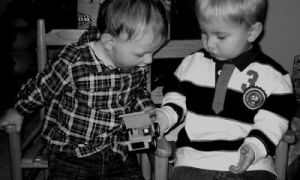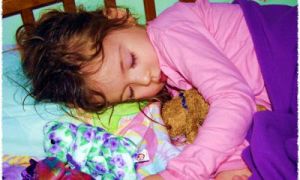When you were little were you ever afraid of the dark? Or small creepy insects? Or hurting yourself? Fears and Phobias are a common problem that some children may have more difficulty in dealing with than others.
Child Fears and Phobias should be taken seriously. Of course there is hardly a child who isn't scared sometimes, depending on the situation and circumstances. Some children are afraid of everything. Fortunately most children's fears are mild or temporary and they can be managed with some help and encouragement from you. However a genuine phobia that your child may have can be much more serious.
Difference Between Fears and Phobias
A phobia is different from fear in a number of ways, which includes:
- Severity – A child with a phobia often worries even when the focus of her anxiety is not present. For example, a child who has a fear of dogs will be scared when she hears them on the street. However a child with a phobia about dogs would become anxious and upset just thinking about them.
- Resistance – In most circumstances, childhood fears are only temporary and are often eased with some guidance and support (hugs and kisses from mum and dad). Phobias, however are much more resistant to change and may last years rather than months.
- Impact – Every fear has an effect on a child's life. For instance she may avoid going to parties because she is afraid of meeting new people. A child with a phobia will handle the situation differently. For instance, she doesn't want to leave the house at all in case she meets an unfamiliar adult.
Common Fears
Each and every child is different but below is a list of common fears that occur during childhood.
- Small animals – A child may have a fear because small animals tend to move unpredictably.
- Cats and dogs – A toddler may have a fear after seeing a big dog snarling or being scratched by a cat.
- The Dark – Some kids may have a fear of the dark because they often hear noises and begin thinking of monsters in the night.
- Water – A preschooler may have a fear of water as they are not confident in water and are scared of losing control and possibly drowning.
- Dirt – An older child may have a fear of dirt because they feel as if it's very unclean.
- Hurting themselves – A child may have a fear of hurting themselves and will not play any games or activities that might make them fall and hurt themselves.
- Failure – Some kids have a fear of failure and unable to start something new.
- Separation – A toddler may have a fear of separating from a parent or familiar adult.
- Loss of love – A child may fear a loss of love when a parent is feeling angry or disappointed at them.
Spotting Signs of Fear
Each child expresses fears in many different ways. Your child may simply tell you “I'm scared” or “I don't like it”. But you may find your child demonstrates their fears through their behaviour rather than through words. Spotting signs of fear in your child isn't always obvious.
Here is a list of possible signs to watch out for which indicates that your child may have a fear.
- Your child begins to stutter while talking, when normally speech is fluent.
- Your child begins to sweat a lot.
- Your child becomes disruptive.
- Your child loses their appetite.
- Your child becomes lazy and reluctant to play with friends.
Dealing With a Fear or Phobia
If your child has a fear or phobia, the best thing for you to do as a parent is help your child overcome it no matter how silly you may think it is. For your child this may be a serious problem that they might not be able to handle by themselves. Below are five strategies you could use to help your child overcome their fears and phobias.
Take your child's fear seriously. Even though your child's fear may be something as small as “being afraid of butterflies”, which you may find amusing. It's important to remember not to joke about it. This fear is very real to your child and your child needs to know that you are going to support them.
Give your child lots of reassurance. Constantly tell your child that they have nothing to fear, they are totally safe and everything will be fine. You can do this as often as you need to, until your child's confidence begins to improve. Providing reassurance to your child boosts their emotional strength, eventually giving your child the strength to beat their fears.
Your child will not learn to overcome their fear until they try to confront it, head on. Make sure your child doesn't avoid the focus of her fear – for instance, your child may ask to stay at home because your neighbor has a dog. However avoidance may be an easy solution at first, it doesn't help your child to deal with their fears.
Teach your child to relax. When you see your child tense up with fear, encourage your child to unclench their hand and arm muscles, relax their facial expression and taking deep breaths, to control breathing. You can practice this each day with your child. By doing this relaxation technique it will help your child to cope with their fears.
Confront your child's fear together. Show your child that they can beat a fear by confrontation, with you there as support. Your presence and encouragement will give your child the confidence to overcome their fears.
Your child's fears are common throughout their childhood development. Once they have overcome their fear, a new one will probably start. This isn't a bad thing because you can teach them to overcome each of their fears and move on with their life. Just remember to support and encourage your child to confront their fears and don't ridicule or make fun of them.


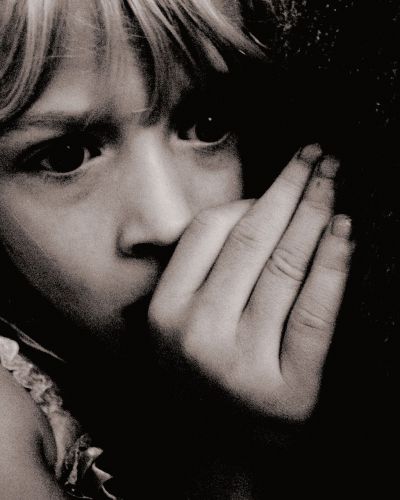

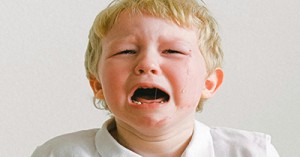
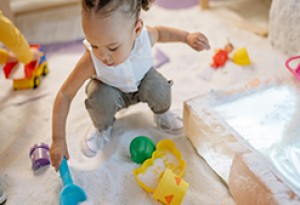

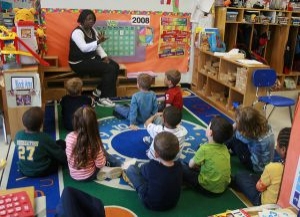 Working as a childcare professional can be a challenge especially when dealing with behavioural problems which may arise. The techniques we use when dealing with
Working as a childcare professional can be a challenge especially when dealing with behavioural problems which may arise. The techniques we use when dealing with There are different types of behaviour that children can display and sometimes it can be hard to manage, especially if a child is having behavioural
There are different types of behaviour that children can display and sometimes it can be hard to manage, especially if a child is having behavioural As a parent, your behavioural expectations of your child can be higher than what is actually developmentally appropriate for your child's age.
As a parent, your behavioural expectations of your child can be higher than what is actually developmentally appropriate for your child's age.
 As Educators, there will be many instances where you will need to write about a child's behaviour. For a behaviour management plan, assessments, half-yearly or
As Educators, there will be many instances where you will need to write about a child's behaviour. For a behaviour management plan, assessments, half-yearly or As Educators when communicating with Parents (through verbal or non-verbal communication), there will be times where we need to discuss issues or concerns that may
As Educators when communicating with Parents (through verbal or non-verbal communication), there will be times where we need to discuss issues or concerns that may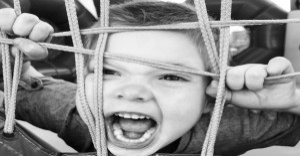 Challenging Behaviour is when a child does something that hurts themselves and/or other people.
Challenging Behaviour is when a child does something that hurts themselves and/or other people.
 As part of your child's development it is normal for your child to have anxiety and fears. A baby commonly shows a fearful sign to
As part of your child's development it is normal for your child to have anxiety and fears. A baby commonly shows a fearful sign to It's always difficult to bring up behavioural issues with parents, it can be nerve wrecking to tell a parent that their child misbehaves but that
It's always difficult to bring up behavioural issues with parents, it can be nerve wrecking to tell a parent that their child misbehaves but that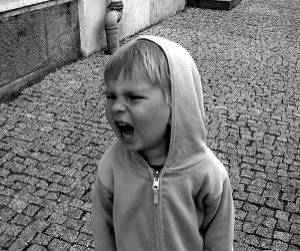 All children deal with anger on a daily basis. Thinking about it as a child, there is a lot to be angry about. Elder people
All children deal with anger on a daily basis. Thinking about it as a child, there is a lot to be angry about. Elder people It is important to understand that your child behaviour problems could not just be from attention seeking. There are many factors to take into consideration
It is important to understand that your child behaviour problems could not just be from attention seeking. There are many factors to take into consideration